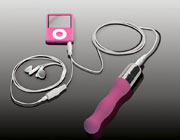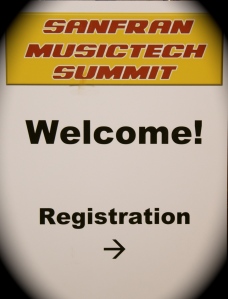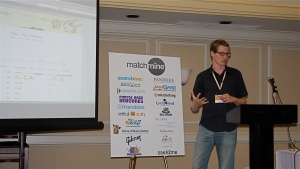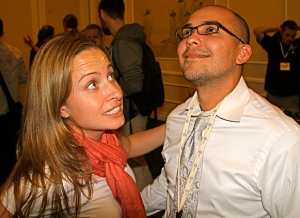We all know how nice it is to mix and match music when we’re getting saucy in the sack. Whether it’s goth lovers tearing each other apart to the noise of death metal, or the college co-eds carefully copulating to Dave Matthews, music and getting it on have gone hand in hand since bagpipes blared over the Scottish plains and the first kilt went flying, and really, probably much longer than that. But up until now, that was really only good when you had a partner. But what if you’re on a plane? Or alone in your car? Or trapped in an elevator?
That’s why iPod owners everywhere should be thanking the creators of the new Naughtibod. Measuring 5.5″ long (with 4″ of that “insertable”), the Naughtibod is bigger than your ex and moves in ways that were probably beyond his imagination. You hook it up to your iPod, play some music and enjoy. Is your iPod in color and you’re an accessory fiend? Fear not, Ms. Bradshaw, this handy musically charged vibrator comes in Bubblegum, Licorice, Blueberry, and Green Apple.
Feeling the urge on the Muni heading across town? Put on your favorite John Mayer song, close your eyes, and ignore that bum gawking at you from across the aisle. On your way to that 3 AM drunk dial that you know you should probably avoid for your own mental health? Tell the cab driver to turn around as you turn up Janet Jackson’s “That’s the Way Love Goes,” and by the time you get back home you’ll wonder why you would even bother going to see that lousy bastard in the first place.
Of course, Ohmibod (the company that makes these) wouldn’t want you to be unable to de-stress if your iPod runs out of batteries, so they’ve made it detachable from the Pod and battery powered for those nights when your iPod’s libido isn’t running or you just can’t pick a genre. Intrigued? Go check it out here, and the next time you see someone seriously getting down to their music, before you go ask them what they’re listening to so you can download it from iTunes when you get home, make sure it’s not just the Naughtibod that they’re enjoying. And if anyone at Ohmibod is reading this, we have some staff members who might like to give it a try… contact me for a mailing address.









